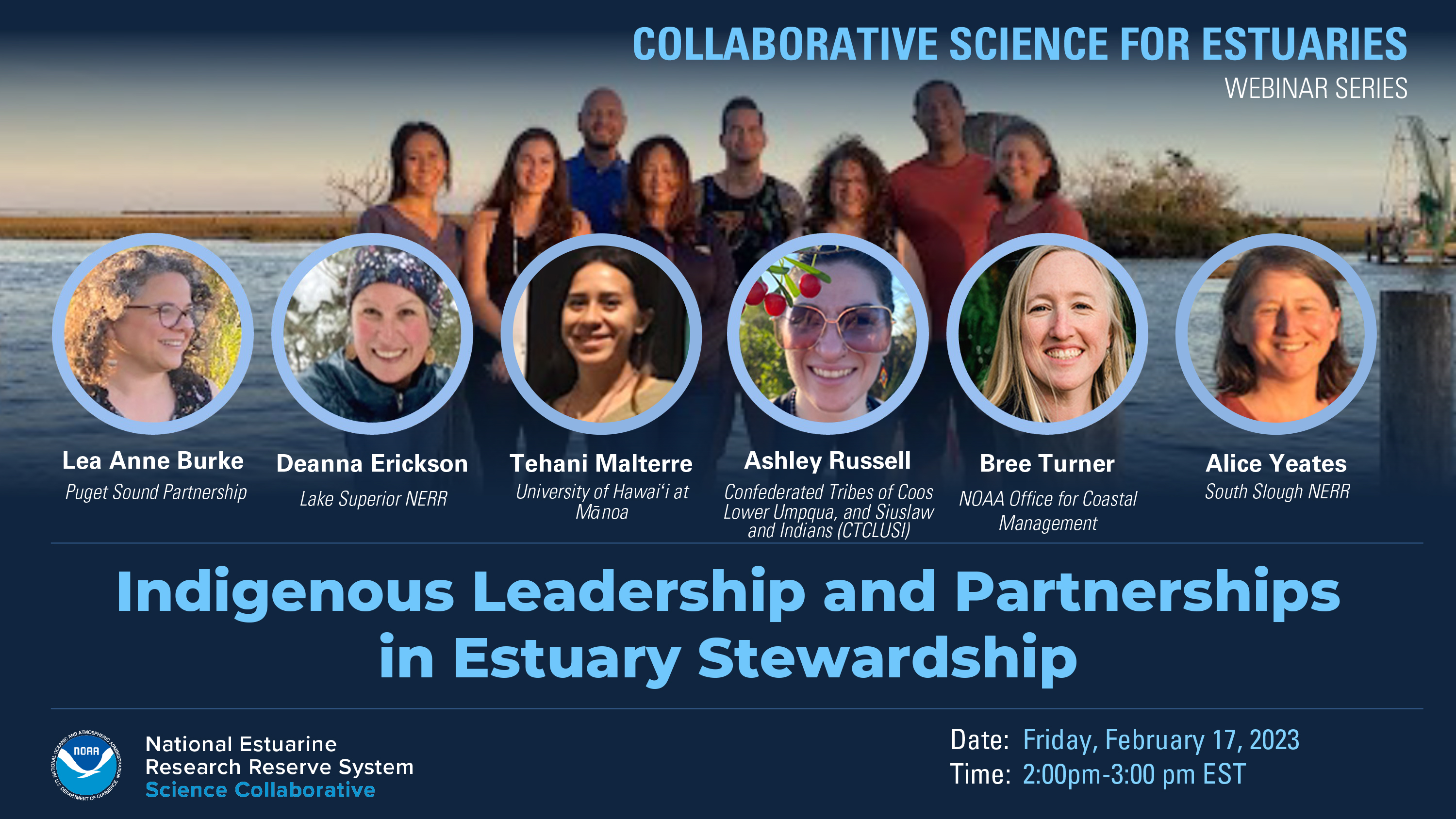 Webinar Description
Webinar Description
As highly productive social-ecological systems, estuaries have continuously been central to Indigenous lifeways. Indigenous science, stewardship practices, and co-management can strengthen well-being for lands, waters, and people. This session advances understanding of the concerns of Indigenous Peoples and Tribal Nations to help coastal practitioners address social and environmental justice with a focus on Pacific Northwest coastal systems. Presenters share ways that land stewards can support thriving relationships with estuaries, sustaining cultural knowledge and practices.
Tribal Nations are sovereign governments with needs distinct from other coastal stakeholders. Estuarine lands and waters in the US may have been ceded via treaties, remain unceded, or ceded with important rights retained. While formal government-to-government consultation with Tribal governments or Indigenous governance organizations is required by certain state or federal policies, other types of tribal engagement can still be rigorous, productive, and supportive of conservation and restoration goals. Learn from examples at the South Slough Reserve, Confederated Tribes of Coos, Lower Umpqua, Siuslaw, the NOAA EPP/MSI program, and the Puget Sound Partnership.
Webinar Summary Products
- Webinar Recording (YouTube)
- Speaker Bios (Webinar Page)
- Slides and Q&A (PDF)